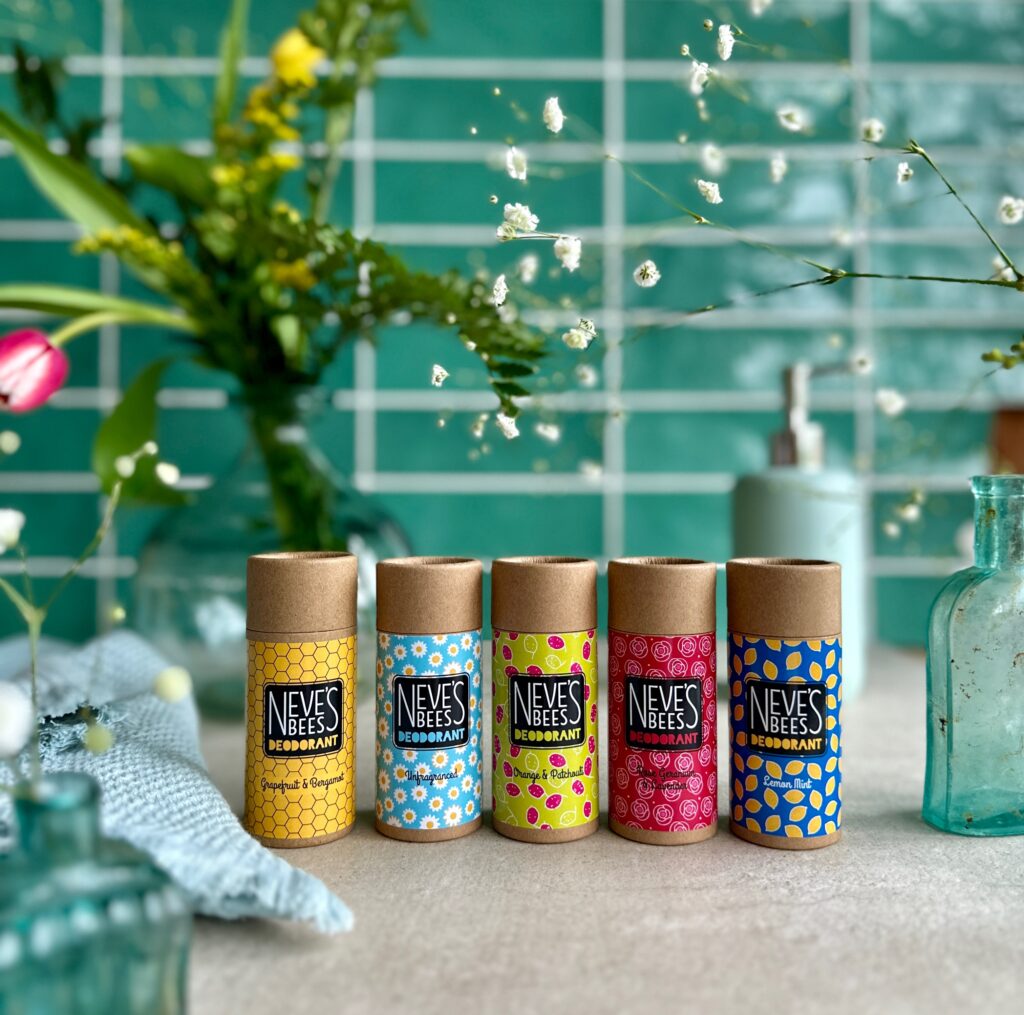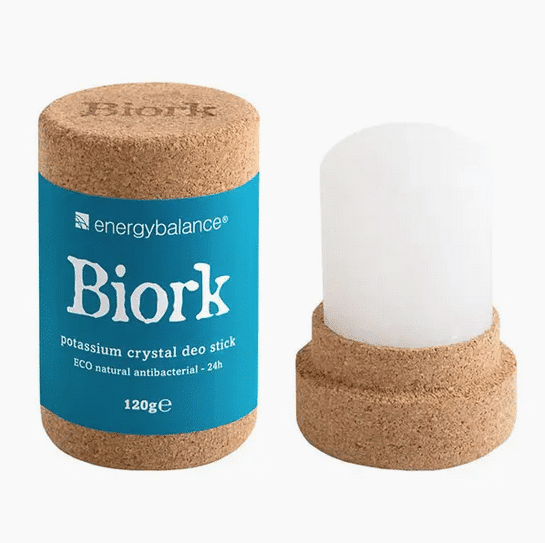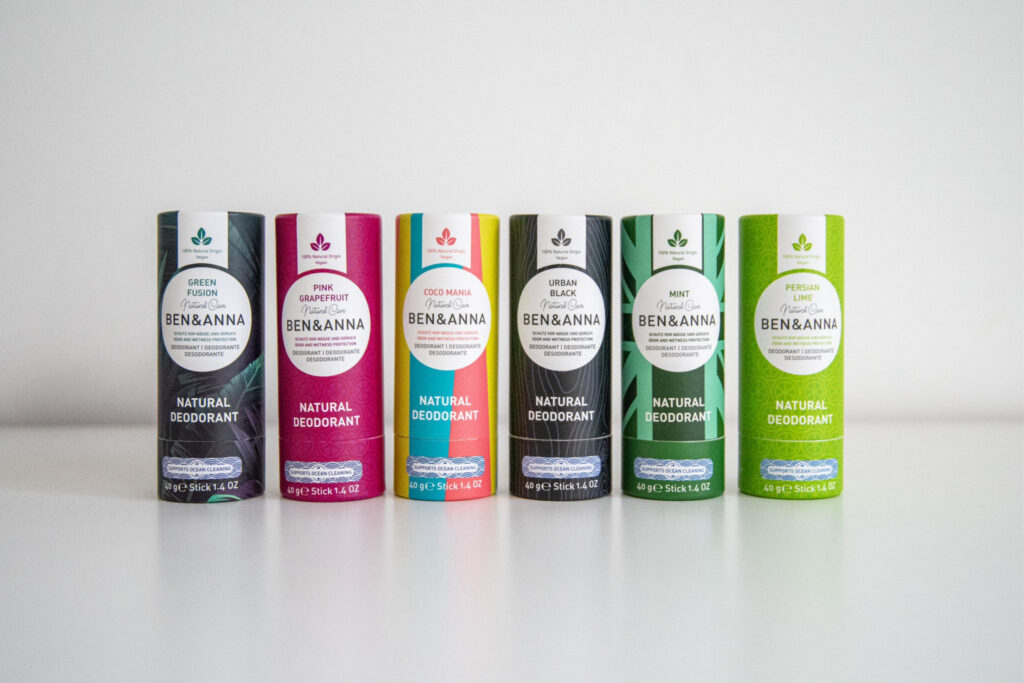Ultra-Processed Beauty: Is our ‘skincare’ doing more harm than good?
In 2020, I wrote an article about greenwashing in beauty that started like this: “I was at a 40th garden party on Saturday night, shimmering in a copper sequinned jumpsuit. I didn’t get too close to people for two reasons. The first, as you can probably guess, is Covid. The second being that my ‘natural’ deodorant wasn’t quite doing the trick as the weather was as changeable as, well, the Government’s lockdown policy.”
For this article, I spoke with multiple beauty experts and showed them a number of brands that made convincing claims of being ‘natural’ and ‘sustainable’. I asked, were these brands good or bad? Not one expert could give me a definite yes or no based on the information these brands provided on their websites.
One of those brands was Wild Deodorant, known for their refillable deodorant. It’s now 2025 and Wild have recently sold to Unilever for a reported £230 million.
So, the question once again is – does this make them good or bad?
Well, personally, when I think of a brand being natural and sustainable I don’t think of a brand that’s helping to prop up the coffers (and helping to greenwash) a huge conglomerate, that’s one of the world’s largest users of plastic, has very publicly rolled back their sustainability efforts, and owns brands that are linked to human rights abuses.
I think of a sustainable and natural deodorant company as being owned by people with good values, who are creating their product in with natural ingredients, ideally produced organically or with similar positive environmental benefits, that consider all for workers all along the supply chain and are healthy for the body that wears it.
The list below contains only those brands. But, first here’s what you need to know about the different types of deodorant.
Three types of deodorant
If you want a deodorant that works for you, you need to know the different types of deodorant:
Antiperspirant: These contain aluminium (such as aluminium chlorohydrate, aluminum hydroxybromide or aluminum zirconium) that work to block your pores. Using an antiperspirant changes the microbiome of your underarms so that you no longer produce sweat. It probably will be effective after a few days (it’s a cumulative effect), but it’s not natural. Bodies are meant to sweat.
Deodorant with non-active ingredients (such as a balm with essential oils): These are essentially just nice-smelling products, designed to mask body odours. They might work well for you if you’re not naturally particularly smelly. But, they won’t be great if you are.
Deodorants with active ingredients (listed as sodium bicarbonate, baking soda or magnesium hydroxide): These work by ever-so-slightly raising the pH of your underarms. So they’re slightly alkali, which combats the growth of the bacteria that makes you smell, because this bacteria prefers a more acidic environment. They can be fragranced or not.
On a personal BO (body odour) note…
There’s nothing wrong with you if you smell. A whole deodorant industry was created because of our dislike (phobia?) of human smells. But it’s completely normal to smell bad sometimes. This changes as we go through life – we might smell more as a teenager or if going through the menopause, for example.
I stress this because I had internalised the messaging of the beauty industry and, as I experimented with natural deodorants and no deodorant, I thought there was something wrong with me for not naturally smelling of roses. Of course, logically I knew otherwise. But, sometimes my underarms stunk and my thoughts weren’t logical. So, I’m leaving this here as a reminder.
Plus, if you’re switching to a natural deodorant brands, it takes a while for your skin and all the bacteria to equilibrate after being damaged by non-natural or aluminium deodorants. I expected this to take a couple of weeks, I estimate it took me a couple of years. But, we are all different so it might take you longer or shorter and also depends on the types of body wash you use.
So, if you want a deodorant that is genuinely better for you, and puts your money into the hands of brands that are really trying to do good things, here’s some you can choose from. Again, I stress we are all different, so you may need to try a couple to find the one that works best for you…
Best natural and sustainable deodorants
(that aren’t owned by Unilever)

Neve’s Bees natural deodorants, 85g, £12.50
* Voted the best natural deodorant 2025, at the European Free From Skincare Awards *
What it contains:
Pure plant oils and natural minerals blended with local beeswax.
What it doesn’t contain:
Any “nasties”. No Aluminium, naturally. But, also importantly for sensitive skin, no coconut oil, because it can be pore blocking (which may be a reason you get spots under your armpits with natural deodorants). Nor sodium bicarbonate, because it can be irritating for some.
Who it’s owned by:
Founder, Julie Macken, whose first degree was in chemistry and says: “The £3 billion UK skincare industry is largely built on channelling women’s (and increasingly men’s) insecurities. Many claims made are technically incorrect. I would love to see people wake up to the fact that the emperor is wearing no clothes!”
Packaging:
Compostable cardboard, that you can put it straight into a compost bin.
Certifications:
Certified 100% Natural by COSMOS and The Soil Association.
Scents to choose from:
- Orange & Patchouli
- Rose Geranium & Lavender
- Grapefruit & Bergamot
- Lemon Mint
- Unfragranced
How long each 85g tube should last:
3-4 months
SHOP NEVE’S BEES DEODORANTS NOW

Biork Crystal Deodorant Stick, 120g, £13.80
What it contains:
Perhaps technically a fourth style of deodorant, this crystal stick is made from natural mineral salts: 100% Potassium Alum.
Potassium alum is a natural mineral salt made up of molecules that are too large to be absorbed by your skin. They form a protective layer on your skin that inhibits the growth of odour-causing bacteria.
(In case this needs to be made explicit, it is very different to the aluminium found in antiperspirants).
What it doesn’t contain:
Anything else.
Who it’s owned by:
Packaging:
Cork is a no waste material that is obtained from the bark of cork oaks. Cork oaks grow in the southwestern Mediterranean countries of Spain, Portugal, Algeria and Morocco. They are one of 150 endemic tree species.
Scents to choose from:
- Unscented
How long each stick should last:
About a year. Just be careful not to drop it, because it will shatter.
Products tested by:
Jo Holden of natural skincare and wellness shop Valley Mist, swears by this deodorant stick, which she has been using for years. She is currently selling off the last of her Wild deodorant stock because she surveyed her customers and 99% of them wanted an alternative.
This stick is an alternative, but for the customers looking for more like-for-like with Wild, Jo has tried and stands by Kutis, a deodorant stick from a woman-owned and run business, based in Wales.
SHOP BIORK CRYSTAL DEODORANT STICK NOW

Ben & Anna Soda Deodorant Sticks, 40g, £7.45
What it contains:
The recipe is based on bicarbonate of soda (antibacterial, good at absorbing moisture, raises the pH), shea butter, and coconut oil.
What it doesn’t contain:
Their deodorants don’t use aluminium; PEGs (aka polyethylene glycol. Polyethylene is a common plastic and when paired with glycol it transforms into a thick, sticky liquid for you to rub on your body. Yum.); Parabens (used as a preservative. They are linked to hormone disruption, reproductive toxicity, immunotoxicity, neurotoxicity and skin irritation); or Phtalates (May be used in synthetic fragrances. Linked to early puberty in girls, a risk factor for later-life breast cancer).
Who it’s owned by:
Marco Hulsbeck started the company in 2017 after a growing number of negative reports about aluminium-containing deodorants appeared in the press, and started work on sourcing an alternative. Ben&Anna is now part of Eco Group.
Packaging:
Plastic-free. The paper sleeves of the deodorants are made of FSC-certified paper. A very thin coating of PLA (biodegradable) foil is also used to prevent the contents from drying out.
Certifications:
Certified natural and sustainable by NATRUE
Scents to choose from:
- Persian Lime
- Pink Grapefruit
- Mint
- Coco Mania
- Urban Black
- Green Fusion
Ben&Anna also offer sensitive deodorant sticks, which don’t contain sodium bicarbonate.
How long each 40g tube should last:
Up to two months.
Products tested by:
Lizzie Rivera. I’m a fan of Ben & Anna deodorants, they were one of the first I discovered that really worked. I am still largely deodorant-free but sometimes a party or work event calls for a little extra effort!


